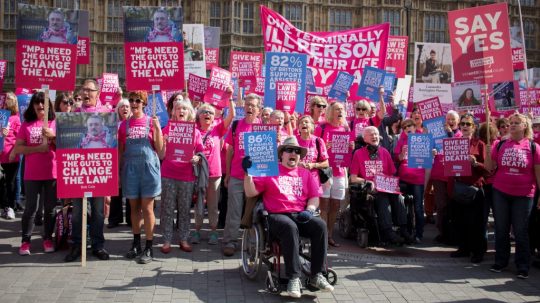The government must reinstate maintenance grants to give poorer students an equal right to education, the head of a leading UK university group has said.
Until 2016, students from low-income families were awarded up to £3,387 a year to help offset the high cost of university fees.
Tim Bradshaw, the chief executive of the Russell Group, said restoring the grant system would make a “substantial” difference to those who were “nervous” about student debt.
It could be very targeted, really cost-effective and actually make quite a substantial difference to those from disadvantaged backgrounds.
Tim Bradshaw, CEO of the Russell Group
Speaking to the Independent, he said: “I think if you give a grant to those students then you might encourage even more to consider applying for university in the first place and think it is actually something they can really aspire to – and that it won’t land them in additional debt at the end of the day.”
The Russell Group, an association made up of 24 leading British research universities, will recommend that the government provides a “living wage” grant for students who are eligible for free school meals.
“It could be very targeted, really cost-effective and actually make quite a substantial difference to those from disadvantaged backgrounds who may inherently be very nervous about taking on an additional loan,” he said.
“Actually the grant could work in their favour.”
Asked whether the loss of the maintenance grant, together with rising tuition fees, could be putting off students from lower income backgrounds from going to university, he answered:
“Yes it might be. The student loans system is very complicated and difficult to understand.”
What Happened to the Maintenance Grants?
 Image credit: University of Birmingham/Flickr
Image credit: University of Birmingham/Flickr
Maintenance grants were scrapped by the then-Chancellor of the Exchequer George Osborne in the 2015 budget.
Now the editor of the Evening Standard, he claimed that they had become “unaffordable” and said there was a “basic unfairness in asking taxpayers to fund grants for people who are likely to earn a lot more than them”.
Osborne said the cut would be “fair to students, fair to taxpayers and vital to secure our long-term economic future”.
Instead, the grants were replaced in the 2016-2017 academic year by loans, which students would only start paying back when they earned a salary of more than £21,000 a year.
This effectively meant that poorer students, who cannot rely on financial support from their families to help repay their debts or supplement their loans, now face an even greater debt after their studies.
This debt could be up to £58,000 for a three-year course.
The Equal Right to Education in the UK
 Image credit: Jay Allen/Crown Copyright
Image credit: Jay Allen/Crown Copyright
Earlier this year, Theresa May announced a review into funding for post-18 education, pledging to make it fairer.
We need to … create a system of tertiary education that works for all our young people. That means equality of access to an academic university education.
Prime Minister Theresa May (February 2018)
“We now have one of the most expensive systems of university tuition in the world,” she admitted, before adding:
“If we are going to succeed in building a fairer society and a stronger economy, we need to throw away this outdated attitude for good and create a system of tertiary education that works for all our young people.
“That means equality of access to an academic university education, which is not dependent on your background, and it means a much greater focus on the technical alternatives too.”
While the government has yet to make any substantial change towards making the higher education system in the UK fairer, the Prime Minister did reference an important human right – the right to education.
In Schedule 1, First Protocol, Article 2 of the Human Rights Act (1998), it states that “no person should be denied the right to an education”.
But is There a Human Right to a University Education?
Not really.
It could be argued that rocketing higher education fees and a lack of financial support for lower income students is denying some individuals the opportunity to be educated to higher academic standards.
It may also be argued that prohibitive fees constitute indirect discrimination towards poorer students.
There is, however, no specific language in the Human Rights Act (1998), or the Education Act (1996), that references university education, only that of compulsory education for children aged five-to-16.







